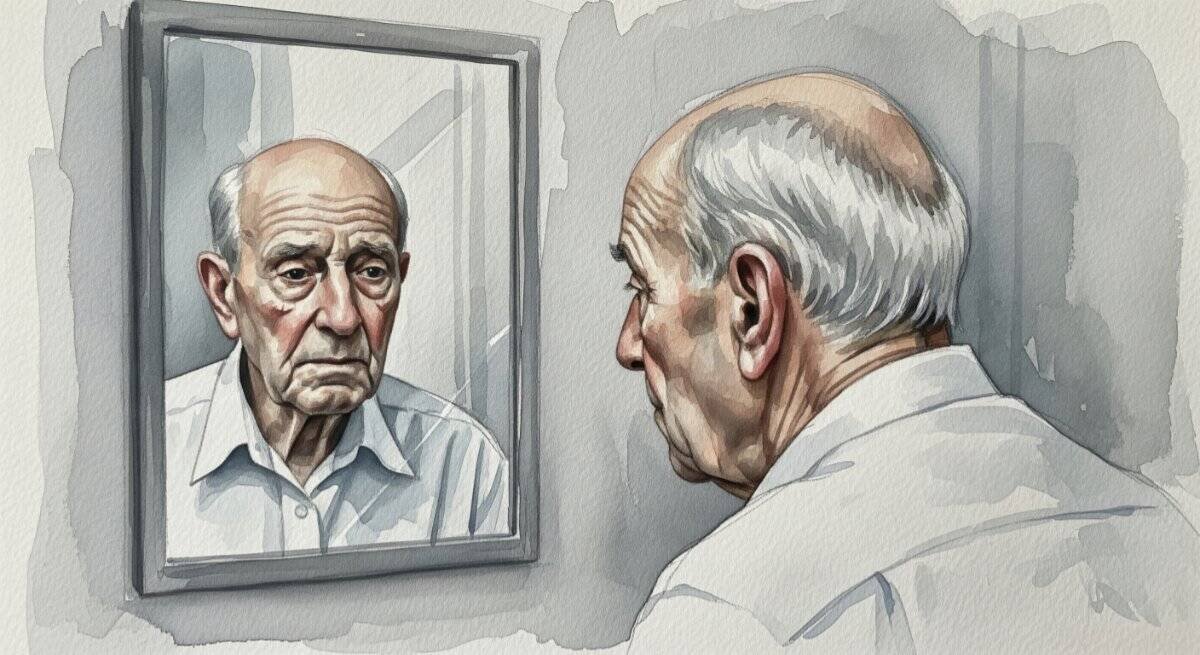There’s something different about catching your reflection unexpectedly versus looking in your familiar bathroom mirror. Last week, walking past a shop window, I glimpsed someone I didn’t immediately recognize. Gray-haired, lined face, slightly stooped posture. It took a second to realize I was looking at myself. The stranger in the window was a harsh reminder of my age, making me question: am I aging gracefully?
The Moment Reality Hits: Who is That Stranger in the Glass?
Table of Contents
That stranger in the glass looked older than the person I see when I deliberately check my appearance each morning. Which one do other people see?
At almost 57, I’m starting to understand that aging plays tricks on us. Not just physically, but in how we perceive ourselves. The mirror might not lie, but I’ve gotten really good at seeing what I want to see.
The Independence Illusion
When we’re younger, independence feels permanent. We can handle anything, go anywhere, defend ourselves if needed. But time eats away at that confidence without you noticing.
I notice it in small ways: taking longer to recover from physical work, being more cautious of my surroundings at night, feeling less certain I could handle confrontation if it arose. Nothing dramatic, just a gradual awareness that I was never as invincible as I felt.
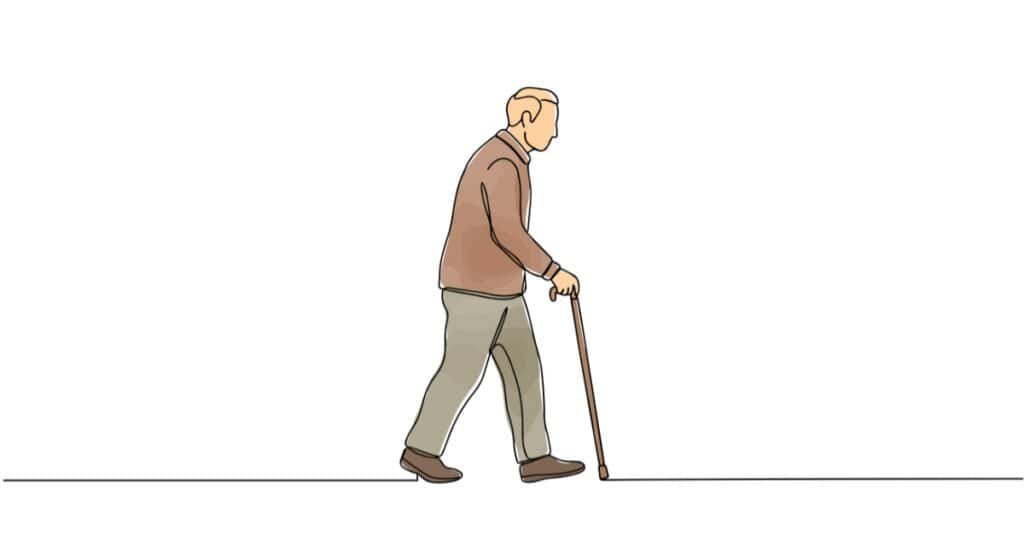
Independence slowly becomes more careful and calculated. You adapt, but you might feel a little more isolated, although not necessarily lonely—I love my alone time, but I’m aware of our increasing vulnerability as we age, which I didn’t consider at 30.
When did you first notice your invincibility starting to fade?
The Confidence Crisis
This awareness has me considering something I never thought I’d try: boxing. Not to become a fighter at my age (obviously), but to reclaim a little of that physical confidence that aging takes away from you. There’s something appealing about learning to defend yourself more, to move with purpose, and to feel capable in my own skin again.

Denzel Washington once said something about boxing teaching you who you are, and who you’re not. I can’t help wondering what I might discover about myself in a boxing gym! Probably that I’m not tough!
It’s not about aggression or proving anything to others. It’s about reclaiming the feeling that I can still surprise myself, still learn something new, and still command a little self-respect.
What physical challenge have you considered taking on to feel stronger?
The Truth About Mirrors
Have you noticed this? We see ourselves differently in familiar mirrors than we do in photos, videos, or unexpected reflections. In my bathroom mirror, I unconsciously focus on the parts that haven’t changed much, like my eyes, my smile, the angles that feel most like “me.” They are like younger visual cues.
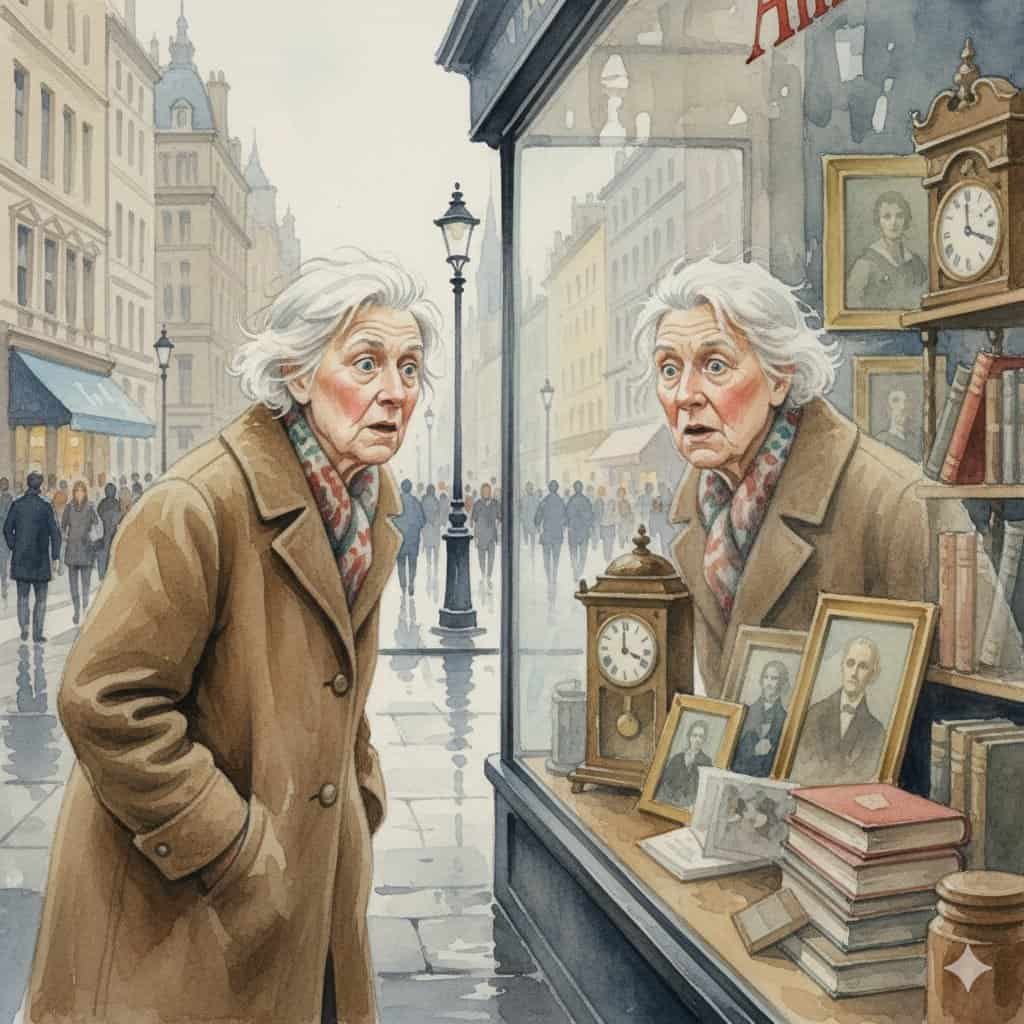
But catch me off guard in a photograph or shop window, and there’s no hiding from how I look now. The deepened lines, the changed posture, the hair that’s more gray than brown now. I’ve written before about secretly wanting a makeover to just tidy myself up a bit.
I think we develop a kind of selective perception over years of looking at ourselves. Maybe that’s protective; if we saw the full impact of aging every time we looked in a mirror, we might never leave the home! Our internal image updates slowly, thankfully, allowing us to maintain some connection to who we’ve always felt ourselves to be.
I remember my Father saying that hair loss is not all bad, because it happens over time.
Do you see yourself differently in mirrors versus photos? Which version feels more accurate?
Who We’ve Become vs. Who We Thought We’d Be
The stranger in that shop window made me wonder: would my younger self approve of who I’ve become? Not just physically, but the whole package. The choices I’ve made, the paths I’ve taken, and the person I am at this stage.
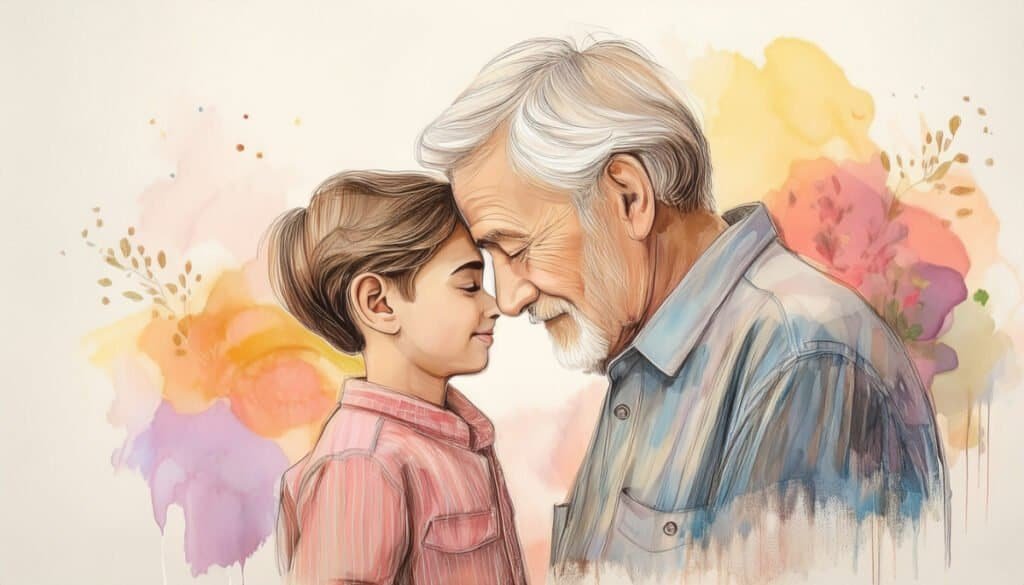
At 25, I imagined I’d be more financially successful by now, maybe more accomplished. This is something I’ve touched on before. But I also couldn’t have predicted the contentment I’d find in honest work, the peace that comes with caring less about others’ opinions, or the genuine satisfaction of helping students find their voices.
Some things about who I’ve become feel like losses. The casual physical confidence I once had, the assumption of endless time, or thinking major life changes were still coming. Others I didn’t see coming, like the ability to appreciate small moments, the freedom from needing to impress anyone, and the clarity about what actually matters now.
What would surprise your younger self most about who you’ve become?
The Things We Can’t Control
There’s not much we can do about the wear and tear on our bodies. We can sleep well, eat cleanly, and exercise regularly. But we can’t stop hair from graying, skin from weathering, or joints from reminding us they’ve been working for decades.
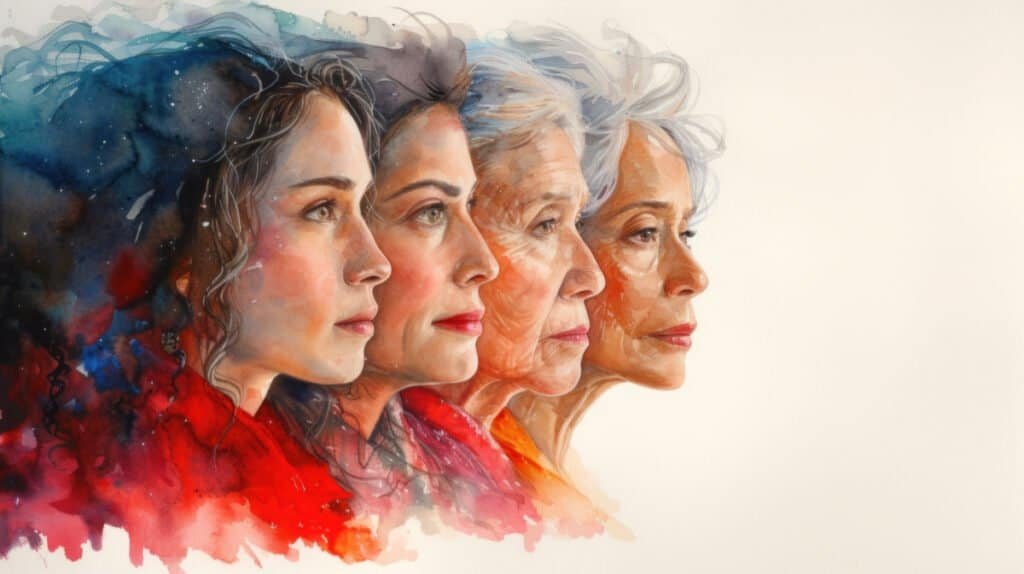
My eyesight isn’t what it was. I need reading glasses now, which somehow feels more significant than it should. If I put them on to look in the mirror, I see details I miss without them. More lines, more spots, more evidence of what time does.
But, I think fighting these changes takes energy that could be better spent on other things. Accepting reality doesn’t mean giving up, it means directing effort toward what we can actually change rather than what we can’t.
How have you learned to accept the physical changes you can’t control?
The Freedom of Authenticity
One unexpected gift of growing older has been caring less about appearing younger than I am. I’ve found myself uninterested in dating, less concerned with seeming impressive, and more focused on simply being genuine. Life feels simpler when you embrace this chapter and accept that youth is in the past.
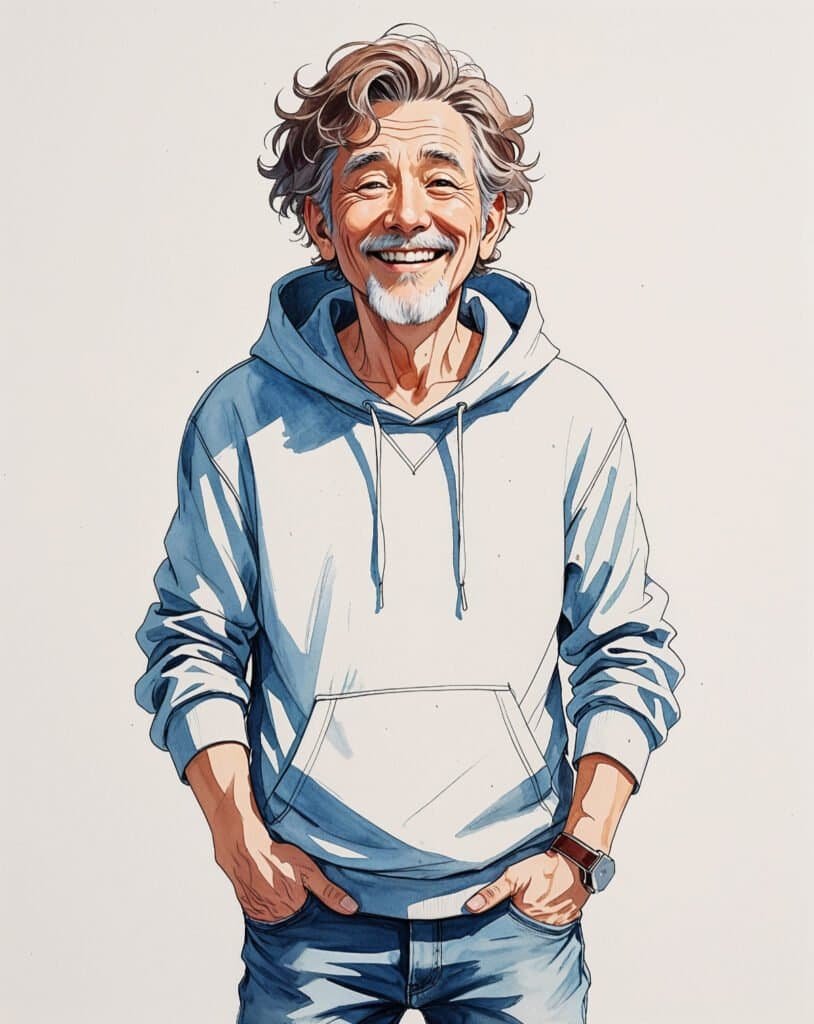
I notice some people fight this transition harder than others, and that’s their choice to make. But for me personally, there’s some relief in letting my age show honestly, in dressing for comfort rather than to impress, and in choosing authenticity over appearance.
You learn to be somewhat incognito, which is not all bad.
Teaching people of all ages has helped shape this a little. When your focus is on serving others rather than impressing them, the pressure to be ideal naturally fades.
Have you found any unexpected freedoms in aging authentically?
The Motorcycle Dream
Despite all this talk of accepting physical limitations, I’m still chasing dreams like getting a motorcycle again, especially if I return to the UK. (I had motorcycles when I was young.) Maybe it’s about reclaiming some of that independence I mentioned, or perhaps it’s just about experiencing something I’ve always wanted to get back into – a little excitement at my own pace after literally riding around on trains the past two decades!

The dream isn’t about proving I’m still young; it’s about honoring the parts of myself that haven’t aged; curiosity, the desire for new experiences, and believing (hoping) there are still adventures ahead. Some dreams deserve pursuing regardless of what the calendar says.
What dream have you held onto that feels more important to you now?
The Honest Accounting
Looking at that stranger in the shop window, I felt a mixture of surprise, acceptance, and determination. Surprise at how much has changed, acceptance of what can’t be reversed, and determination to make the most of what remains.
The mirror doesn’t lie, but it doesn’t tell the whole story either. It shows the surface changes but misses the internal growth, the accumulated wisdom, the deepened capacity for appreciation that often comes with age.
We’re all navigating this territory without a map. The best we can do is be honest about what we see, gentle with what we can’t change, and intentional about what we still want to experience.
What’s surprised you most about getting older? How do you handle feeling young inside but looking old outside? What would your younger self think of the person you’ve become?

Share your thoughts below. I respond to every comment, and your experience often helps others more than mine does.

